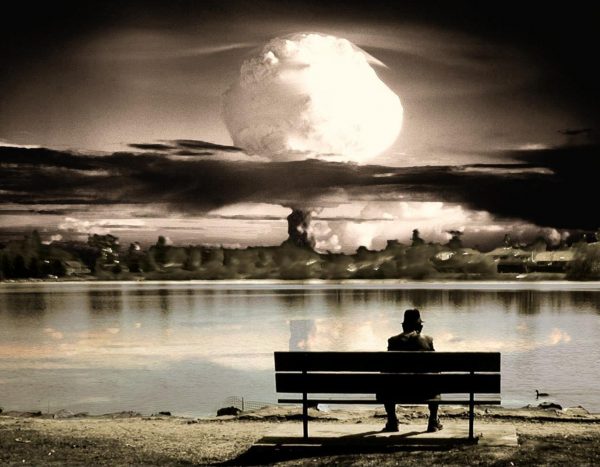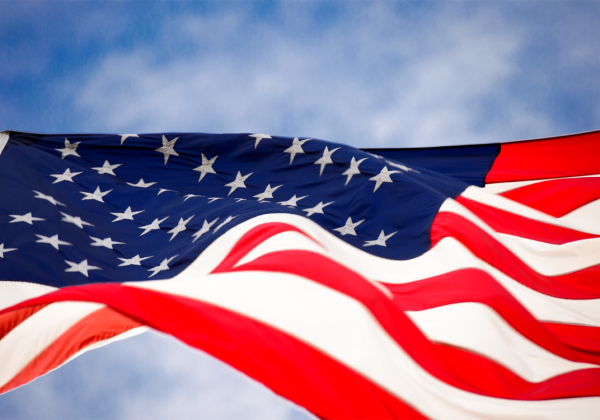Those of you who have followed this series since the beginning (good heavens, that was January of 2009, more than six years ago!) know that most of the time I’m just expressing my opinion about something. Sometimes, though, I address a problem and propose what I believe is the best solution to that problem. Oftentimes my proposed solution isn’t politically correct, and it’s rarely adopted by the society in general. Fortunately, I’m not deterred by those facts.
On rare occasion I offer advice to a particular segment of society. That’s what I’m going to do today. Since all of us could be affected by this problem, though, I thought I’d share my thoughts with everyone.
The past year has brought several unfortunate incidents that could, taken together, alter our way of life here in the U.S. The first occurred in July of 2014, when a white police officer in New York City tried to arrest an unarmed black man. The man resisted, and in the ensuing struggle the man was placed in a chokehold and died.
Then in August a young black man in Ferguson, MO, was shot and killed by a white police officer who was trying to arrest him for a convenience store robbery that had occurred a few minutes earlier.
In April of this year a black man suffered fatal injuries while in police custody in Baltimore. And in May, a white policeman in Cleveland was found “not guilty” after the local district attorney charged him with second-degree murder in the shooting of two black suspects—even though during a high-speed chase, a number of shots were fired at police officers.
I’m not going to discuss the details of those incidents. They’ve been widely written about, covered in seemingly endless TV news reports, and debated around water coolers everywhere. I’m sure all my readers have an opinion about what really happened and where the blame should be placed—as do I. Let’s leave the “blame game” there.
The aftermath of every incident was the same, though. A combination of local residents and outside agitators engaged in a period of demonstrations, riots, looting, and burning. Al Sharpton showed up to fan the flames of racial discord. People like Barak Obama, Eric Holder, and Jesse Jackson made public statements about what they implied was the widespread oppression of black men by white policemen.
In New York City, things got even worse. On Dec. 20, 2014, two white policemen were executed by a black man who just that morning had written on his Facebook page, “Two of theirs for one of ours. Today two pigs will fly.”
I have a great deal of admiration—and sympathy—for those who choose to go into law enforcement today. Most of the people they deal with on the job are going to be hostile to them. A few will try to injure or kill them.
The local news media will be unfailingly critical of them. When is the last time you saw a print article or TV news segment praising a police officer? At my age I’m reluctant to say I’ve never seen one, but I can honestly say that if I have, I don’t recall it.
They know—or will quickly learn—that the top brass in their department isn’t going to support them. Let’s be honest—the police chief, the assistant chiefs, and the captains who are the division commanders got there by being good politicians, not good cops. They tell the officers under their command to police aggressively so that the crime statistics come down, but when the officers do what they’ve been ordered to do, they have to be careful how they do it.
They know that if they have to shoot a white criminal during a robbery, it’s just another dead white guy. But if they shoot a black criminal, Al Sharpton will show up with a bunch of outside agitators. There will be demonstrations, riots, looting, and burning. The local DA, who wants to be mayor, will file charges against them.
Notwithstanding their Constitutional guarantee of being “innocent until proven guilty,” they will be tried and convicted in the local and national media. The President of the United States, The Attorney General of the United States, and possibly the governor of their state and the mayor of their town will make statements that, despite their careful wording, make it clear that those august gentlemen think the policeman is guilty of violating the victim’s civil rights by murdering him.
The federal Department of Justice will investigate them and possibly file felony civil rights charges. They will face a civil lawsuit that will bankrupt them even if they win it.
They will probably be fired and lose their pension. And the worst penalty of all is that even if they are eventually exonerated of all charges, they will never work in law enforcement again. No local, state, or federal agency would risk the bad publicity that would come if they hired that individual.
But this situation has a solution. Herewith, I offer it to police officers everywhere.
When a new recruit graduates from the Police Academy and goes into the street, he quickly learns that incidents involving the police fall into two categories. First are the crimes he happens upon while patrolling the streets: street-corner drug deals, prostitutes soliciting business, that sort of thing. My advice is…ignore them.
There’s nothing to be gained by interfering. You’ll probably find yourself quickly surrounded by fifteen or twenty “brothas,” most of whom carry knives and a few of whom probably have guns. The likelihood of a good outcome is slim and none, with the odds favouring “none.”
The other type of incident is the one that is recorded on the dispatcher’s log. For example, when the dispatcher calls you about an armed robbery in progress, you have to respond because it’s on the record. My advice is…obey all traffic laws. Observe the speed limit. Stop at all stop signs and red lights. Turn the lights and siren on two or three blocks away, so the robbers have plenty of warning you’re getting close.
Armed robberies have a very high risk-to-reward ratio. By definition, the robbers are armed. If you surprise them in the act, they’re probably going to shoot at you. If you get shot, it tends to ruin your whole day.
If you shoot one of the robbers, he will turn out to be a 16-year-old honor student who was a star of the football team and volunteered at the local homeless shelter. His ambition was to go to divinity school and become a priest. That’s what his parents will tell the reporters, anyway.
There are other things the policeman on the street can do to assure local harmony. For example, don’t check license plates against the “hot sheet” of stolen cars. If you spot a stolen car and try to stop it, it’s probably going to result in a high-speed chase, and a high-speed chase is a loser all around. The fleeing felon always tries to drive by as many schools as possible. When he doesn’t have a school handy, he’ll try to find a quiet residential neighbourhood with narrow streets and lots of children playing in the yards.
Even if no one gets killed, the city will be criticized for not terminating the chase when the first school or neighbourhood was encountered. And that stuff rolls downhill, from the media to the mayor to the chief to the division commander to the patrolman.
If someone does get killed, see above—loss of job, loss of pension, felony trial, civil suit, bankruptcy, etc.
The cop on the street should also be careful not to profile. Profiling is particularly egregious because it isn’t actually prohibited by any law—therefore, there’s no legal definition of exactly what constitutes profiling. In any given town, profiling is whatever the media, the DA, the mayor, the police chief, Al Sharpton, and/or Eric Holder says it is.
For example, if that stolen car in the previous example was being driven by a black or Latino person, the police officer might be accused of trying to stop it because he was profiling the driver—never mind that it was on the hot sheet.
I’m hearing a chorus of protests out there. “Wait a minute! The police can’t do that! That’s not what we’re paying them for!”
Then what are we paying them for? They’re already risking death just by putting on the uniform and going after Bad Guys. Is the pittance we pay them (on average, not much more than they could make stocking shelves at Walmart) also supposed to compensate them for risking jail time, bankruptcy, public humiliation, and loss of their career?
Okay, maybe I’m being facetious. Maybe. But think about this. How many people were arrested in Ferguson after three or four nights of rioting, looting, and burning? Maybe a dozen, and I’ll guarantee you that all charges against them were dropped as soon as the public spotlight turned elsewhere.
How many people were arrested in Baltimore? Again, maybe a dozen, and none will be prosecuted.
How many were arrested in Cleveland? A dozen? That’s starting to sound like a suspiciously consistent number. It sounds like maybe the number that can be stuffed into two police vans and hauled to the jail, where the local police, already overworked by the riots and looting, will spend more hours on the paperwork for those dozen than the miscreants will spend behind bars.
What should have happened in all three of those places, and what should happen in every such incident in the future, is what happened in Waco a few weekends ago when several biker gangs had a shootout. The police arrested 170 people. They arrested so many people that they had to borrow school busses from the local school district to transport them to jail, and they had to borrow jail space from several surrounding communities and counties to lock them all up—but lock them up they did.
I will be very surprised if every one of those 170 people doesn’t go before a Grand Jury. The Grand Jury may decide there isn’t enough evidence to prosecute some of them, but I seriously doubt the police will just unlock the cells and say, “Y’all go on, now,” like I suspect happened in Ferguson, Baltimore, and Cleveland.
I think we all need to consider what’s going to happen if we continue letting a combination of politically correct politicians, the federal Department of Justice, and Al Sharpton pressure us into prosecuting the Good Guys for doing their job. As it happens, we don’t need to wonder what might happen. We have concrete evidence.
According to news reports, violent crime in Ferguson and Baltimore has more than doubled in the weeks and months since the incidents there. Sociologists and criminologists who have looked at the two cities believe the marked increase is due to a combination of two factors.
One is that the various factions of Bad Guys feel emboldened by the fact that the local government seems to be afraid of “offending” them. They got away with felony vandalism, looting, destruction of property, and assault on police officers during the riots. They think they can get away with that much and more now.
The other factor is exactly what I wrote about in the beginning of this commentary. The police aren’t policing as aggressively. When they drive thru the ghetto areas they ignore everything they can. If something is recorded on the dispatcher’s log, they take their time getting there. Instead of trying to capture the Bad Guys, they simply get there in time to write up the report that the business owner can use to file his insurance claim.
Bad Guys are, by definition, stupid people. But even stupid people will eventually figure out that the police aren’t making any real effort to stop them. When that time comes, no one and no place will be safe.

